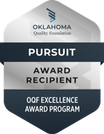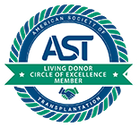Whole Body Donation
Deciding to donate your whole-body is a priceless gift to help advance medical technology, training, and education. There are two kinds of whole body donation:
The first is through university programs generally called willed body programs. These donors are generally used for basic anatomy classes for undergrad, graduate and medical school students. They can also be used for more specialized training like forensic and mortuary school. Most university program require a person to be pre-registered with them to be eligible. University programs also have limits on how many they can accept in a given timeframe. University programs typically do not allow for any type of donation or ME involvement to be eligible as they want the body fully intact for their use. Both OU and OSU have programs and they then supply the other Oklahoma schools needing donors through their programs.
OU College of Medicine – The University of Oklahoma
Willed Body Program
(405) 271-2424 ext. 0
OSU Center for Health Sciences - College of Osteopathic Medicine
Body Donor Program
(918) 561-1250
The second is through independent non-transplant anatomical donation organizations (NADOs). These organizations use donors for medical device research and development, surgeon or post medical school training, and to help supplement university programs that do not have their own willed body program. NADOs do not require pre-registration but it is preferred. Depending on the organization they can take post donation or post ME cases. However, since we do not have one in the state of Oklahoma they tend to limit just organ and eye donation and exclude any tissue donors or ME cases from their eligibility. As of right now there are only two NADOs that take some donations from the state of Oklahoma who are also accredited by AATB.
Most whole body donations cover the cost of cremation; however, no other funeral costs are covered and it can take weeks to even years to receive the ashes back. Whole body donation tends to be more lenient on PMHs they can accept but still do rule out for anything communicable like Hep B, Hep C and HIV. They also will rule out for too low or too high of a BMI. But outside those, most medical histories are acceptable. Pre-registration does not guarantee acceptance.
The first is through university programs generally called willed body programs. These donors are generally used for basic anatomy classes for undergrad, graduate and medical school students. They can also be used for more specialized training like forensic and mortuary school. Most university program require a person to be pre-registered with them to be eligible. University programs also have limits on how many they can accept in a given timeframe. University programs typically do not allow for any type of donation or ME involvement to be eligible as they want the body fully intact for their use. Both OU and OSU have programs and they then supply the other Oklahoma schools needing donors through their programs.
OU College of Medicine – The University of Oklahoma
Willed Body Program
(405) 271-2424 ext. 0
OSU Center for Health Sciences - College of Osteopathic Medicine
Body Donor Program
(918) 561-1250
The second is through independent non-transplant anatomical donation organizations (NADOs). These organizations use donors for medical device research and development, surgeon or post medical school training, and to help supplement university programs that do not have their own willed body program. NADOs do not require pre-registration but it is preferred. Depending on the organization they can take post donation or post ME cases. However, since we do not have one in the state of Oklahoma they tend to limit just organ and eye donation and exclude any tissue donors or ME cases from their eligibility. As of right now there are only two NADOs that take some donations from the state of Oklahoma who are also accredited by AATB.
- The Medical Education Research Institute out of TN- GenesisLegacy.org or Meri.org
- MedCure- based in OR but has several locations across the US Medcure.org
Most whole body donations cover the cost of cremation; however, no other funeral costs are covered and it can take weeks to even years to receive the ashes back. Whole body donation tends to be more lenient on PMHs they can accept but still do rule out for anything communicable like Hep B, Hep C and HIV. They also will rule out for too low or too high of a BMI. But outside those, most medical histories are acceptable. Pre-registration does not guarantee acceptance.








